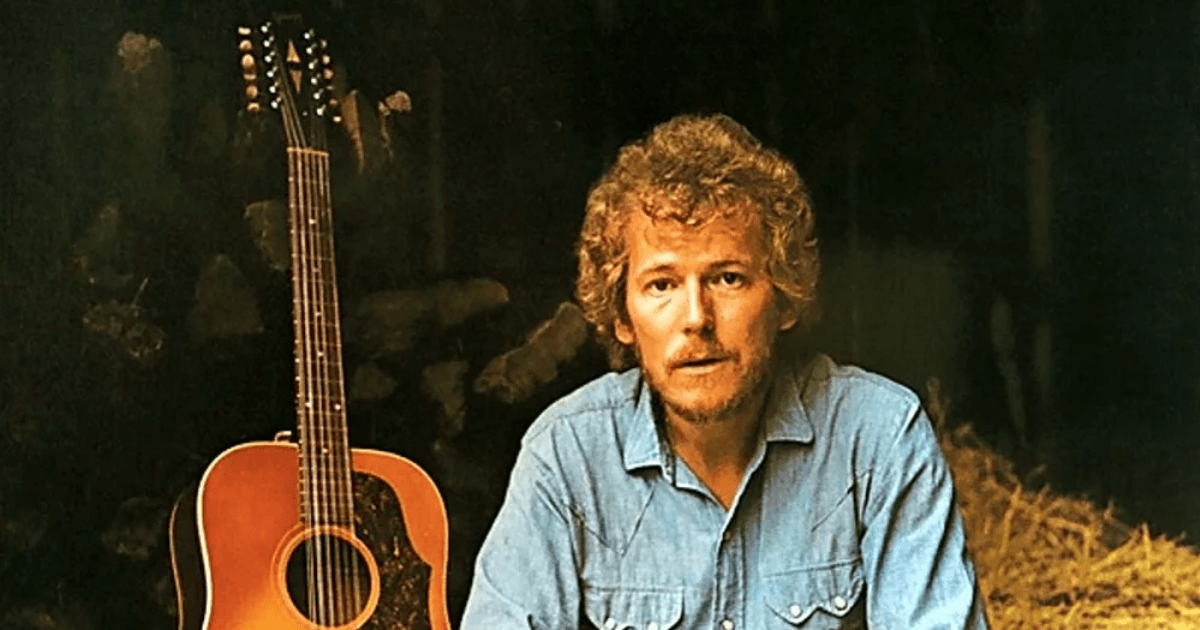About the song
“Early Morning Rain” by Gordon Lightfoot, first released in 1966 on his debut album Lightfoot!, stands as one of the most iconic and enduring folk songs of the 20th century. Although deceptively simple in melody and structure, the song carries an emotional depth and narrative poignancy that exemplify Lightfoot’s gift for storytelling. It is a song about longing, displacement, and the ache of missing a life or a person who feels irrevocably distant. Over the decades, “Early Morning Rain” has become a timeless classic, performed and recorded by major artists such as Elvis Presley, Bob Dylan, Peter, Paul and Mary, Judy Collins, and The Grateful Dead, further confirming its universal emotional resonance.
At its core, “Early Morning Rain” reflects Lightfoot’s experiences during his early years as a struggling Canadian musician living in the United States. The inspiration for the song reportedly came from a moment of homesickness while he was in Los Angeles, watching planes take off from LAX. The sense of yearning embedded in the lyrics is therefore not merely poetic—it is rooted in authentic personal experience. Lightfoot captured the feeling of being stranded far from home with no money, no transportation, and no connection to the world beyond the chain-link fence separating him from the runway. This simple but powerful image became the emotional and visual foundation of the song.
Musically, “Early Morning Rain” reflects Lightfoot’s folk roots, with its gentle guitar picking patterns, steady rhythm, and warm, plaintive vocal delivery. The instrumentation is sparse and intimate, allowing the lyrics to take center stage. The melody is straightforward but memorable, its flowing contours echoing the steady, inevitable ascent of the airplanes referenced throughout the song. Lightfoot’s voice—soft, weathered, and emotionally honest—adds an additional layer of vulnerability that enhances the song’s impact. The recording feels like a quiet confession told to a close friend in the stillness of dawn.
Lyrically, the song paints a vivid picture of a weary traveler standing in the cold early morning rain, watching a “707 set to go,” yet unable to board. Lightfoot’s verses detail the sensory elements of this moment: the chill of the weather, the glow of runway lights, the sound of engines roaring to life. The imagery is both cinematic and deeply personal. The repeated acknowledgment that the singer “can’t go home this way” underscores the despair of being stuck—physically, emotionally, and economically. It’s a narrative of yearning without resolution, longing without relief.
One of the most compelling aspects of “Early Morning Rain” is the universality of its themes. While rooted in Lightfoot’s personal circumstances, the feelings he expresses resonate with anyone who has ever felt separated from home, from loved ones, or from a familiar sense of belonging. The plane—a symbol of escape, freedom, and connection—becomes a reminder of everything the narrator lacks. This contrast between mobility and helplessness gives the song much of its emotional force. The plane soaring into the sky becomes a metaphor for life moving on without him.
The cultural significance of the song extends far beyond its initial release. “Early Morning Rain” became a beloved staple in both the Canadian and American folk music traditions. Bob Dylan famously included a version on his 1970 album Self Portrait, while Elvis Presley performed it in the 1970s with his band, giving it a rich, soulful interpretation. Each reinterpretation highlights a different emotional dimension of the song, demonstrating its adaptability and enduring relevance.
Gordon Lightfoot’s songwriting is often praised for its clarity and poetic restraint, and “Early Morning Rain” exemplifies this approach. He does not rely on complex metaphors or abstract language. Instead, he uses everyday imagery—airplanes, fences, rain—to evoke profound emotional truths. This accessible yet deeply moving style is a hallmark of his work and one of the reasons he is celebrated as one of Canada’s greatest musical storytellers.
In the decades since its release, “Early Morning Rain” has remained one of Lightfoot’s most cherished songs. Its themes of longing, wandering, and the quiet heartbreak of separation continue to resonate with listeners across generations. Whether experienced as a folk ballad, a country tune, or a soulful reinterpretation, the emotional truth at the heart of the song remains unchanged. “Early Morning Rain” is not simply a piece of music—it is a timeless expression of human vulnerability, crafted with profound sensitivity and enduring artistry.
